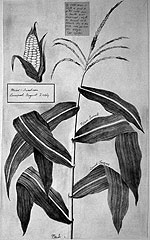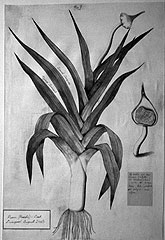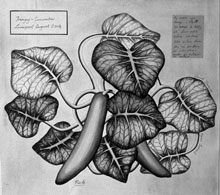
| HOME |
| NERVE |
| REVIEWS |
| ARCHIVE |
| EVENTS |
| LINKS |
| ABOUT US |
| CONTRIBUTORS |
| BACK ISSUES |
| CONTACT US |
 The Allotment
The Allotment
The physical activity and communal interaction needed to develop and cultivate a successful plot of land brings important benefits to health, especially mental health. Below, David Jacques explains how he, Carl Hunter and Clare Heney documented a project working with traumatised people on an allotment, which led to an exhibition in Liverpool and Cologne.
This exhibition was the result of an attachment over eighteen months
or so for Carl, Clare and myself, to a project that supports people seeking
asylum in Great Britain. Most came from the war torn Balkan States. The
situation in Great Britain regarding people seeking asylum determines
that whilst applications are being assessed or reviewed the applicant
cannot undertake any paid work. The reliance on social benefits and the
lack of a sympathetic support system has led to many of these people feeling
isolated, vulnerable and undervalued.
Located on a municipal allotment in our hometown, Liverpool, the project
challenges this predicament head-on. It provides the chance to get involved
in the physical activity and communal interaction needed to develop and
cultivate a successful plot of land. It also offers support in any attempts
to address welfare problems and most importantly employs the services
of a psychotherapist on site.
As artists visiting the allotment project, our relationship with the participants
grew over a lengthy period through trust and friendship.
The work we have produced resulted from our being given access and insights
into the lives of this group of people.
 The
Artworks
The
Artworks
The drawings depict some of the things that have been successfully grown
on the allotment, mostly by our friend Njasi. They are realised somewhat
like the archetypal 'botanical study', a form long associated with aspects
of commerce, science and colonisation.
In attempting to subvert this form, each drawing ('specimen') is accompanied
by a description ('classification') - though not rendered in the formal,
academic language as expected - rather Njasi has written in his native
Kosovan about how he grew the plant himself, on a municipal allotment
in Liverpool…
Carl & Clare's photographs, shown at the exhibition, were produced
in tandem with their film work. Three short films have since been completed
and shown on Channel 4 and a feature film is currently in production.
Sue Hunter speaks to the project Director
I interviewed Margrit Ruegg, Senior Psychotherapist and Project Director
of the Family Refugee Support Project.
This project has links with the Medical Foundation for the Care of Victims
of Torture in London, who run a Natural Growth Project, a horticultural
therapy service.
Margrit told me of the importance of the Allotment for the health, especially
mental health, of the refugee families.
These families have all suffered trauma from war, torture and the loss
of their homes. They were driven out of their villages by the army and
have seen their houses burned to the ground; some have been used as human
shields, many families split up.
On arriving here most refugees don't want to or can't talk about their
experiences, but they suffer flashbacks and nightmares constantly.
 Adding
to their stress is the uncertainty of their asylum applications, the waiting
in limbo for Home Office decisions. Whenever someone is deported it has
a terrible effect on everyone else.
Adding
to their stress is the uncertainty of their asylum applications, the waiting
in limbo for Home Office decisions. Whenever someone is deported it has
a terrible effect on everyone else.
By working on the land, alongside each other and with Margrit, gradually
they relax enough to talk about the horrors they have gone through in
an informal way.
The physical outdoor work of planting, growing and harvesting food itself
has a healing effect, and can bring back happier memories of working the
land before the war.
Because of language barriers, the gardening works as a metaphor for their
uprooted lives, and the growing plants match their growing healing process.
This work "Under the Sky", as Margrit put it, in touch with
the elements, helps everyone sleep better, and provides a haven to escape
from grim housing conditions.
Another benefit comes from the men being able to grow and provide food
for their families and friends, a great confidence-booster, after having
lost everything.
Finally, I refer you to David Jacques' "botanical" drawings
of the actual vegetables grown on the allotment. I visited David Jacques'
tiny studio where they were being exhibited: they were not only beautiful,
but most moving, as they were a joint creative process between the artist
and the man who grew these plants.
What was most touching and significant, each drawing was also signed by
the gardener himself, as well as the artist.